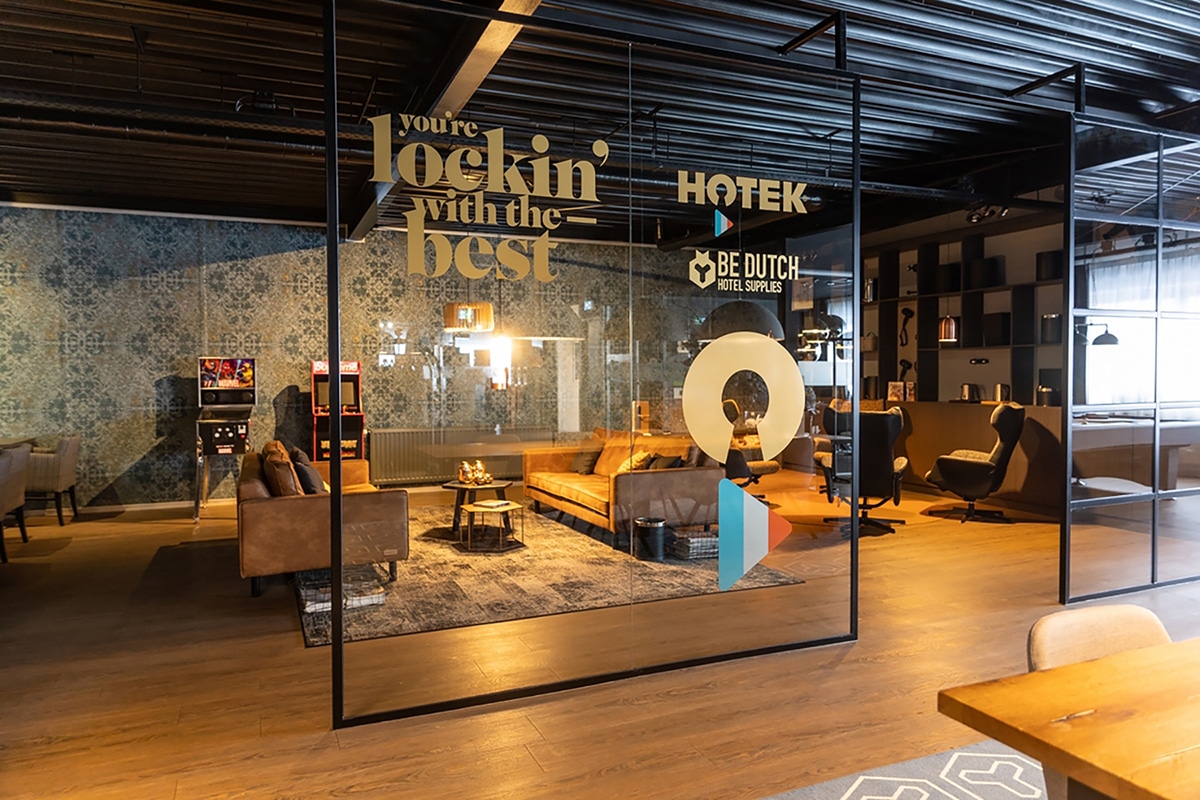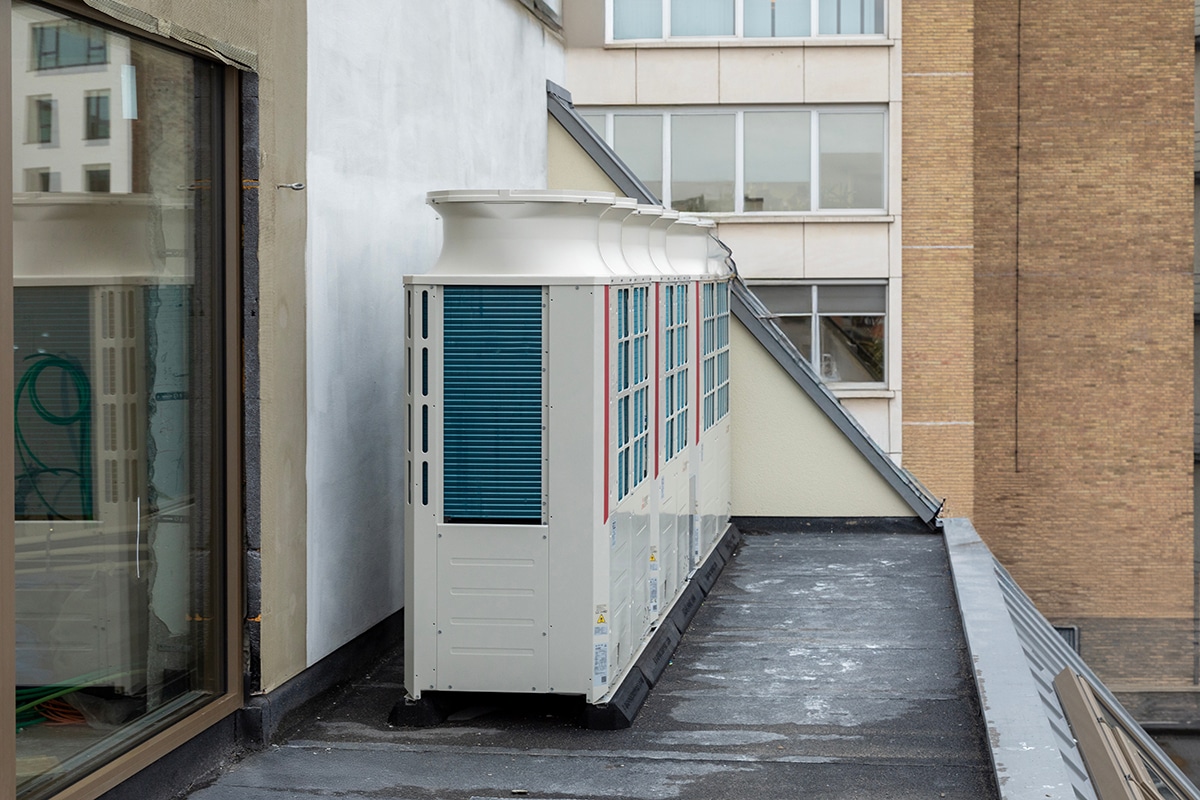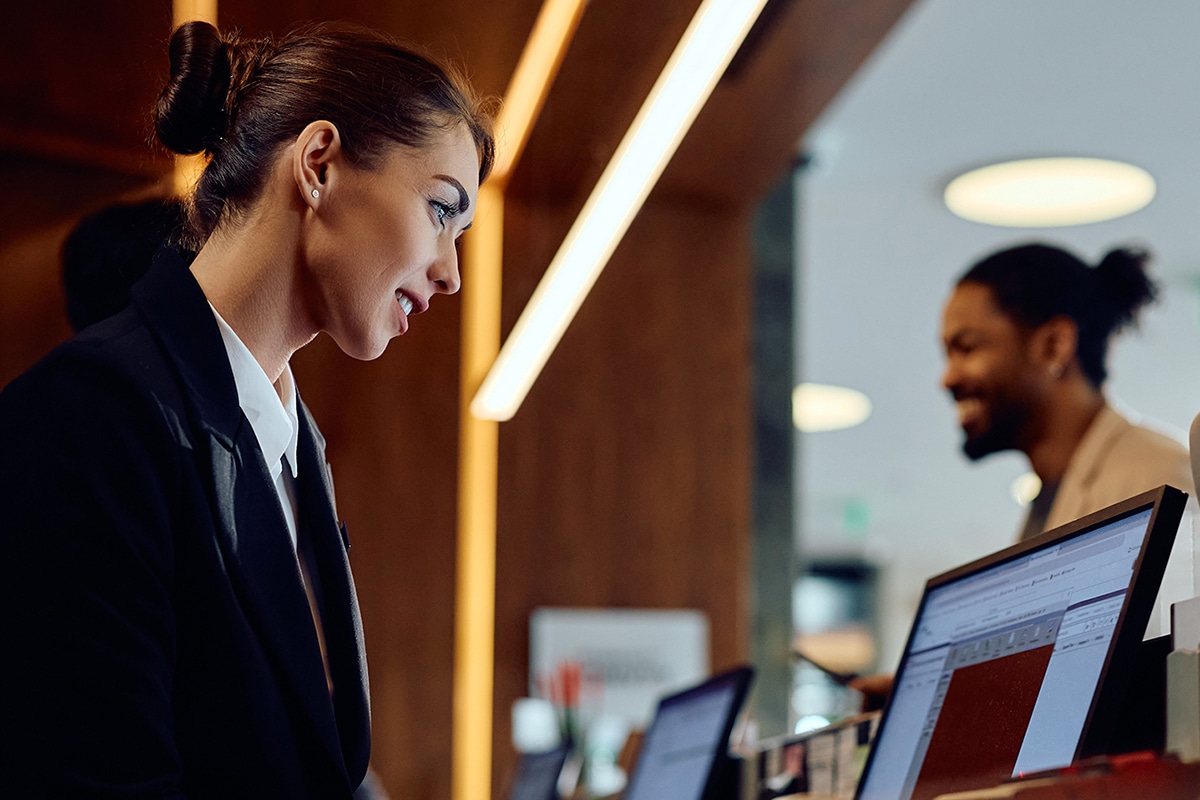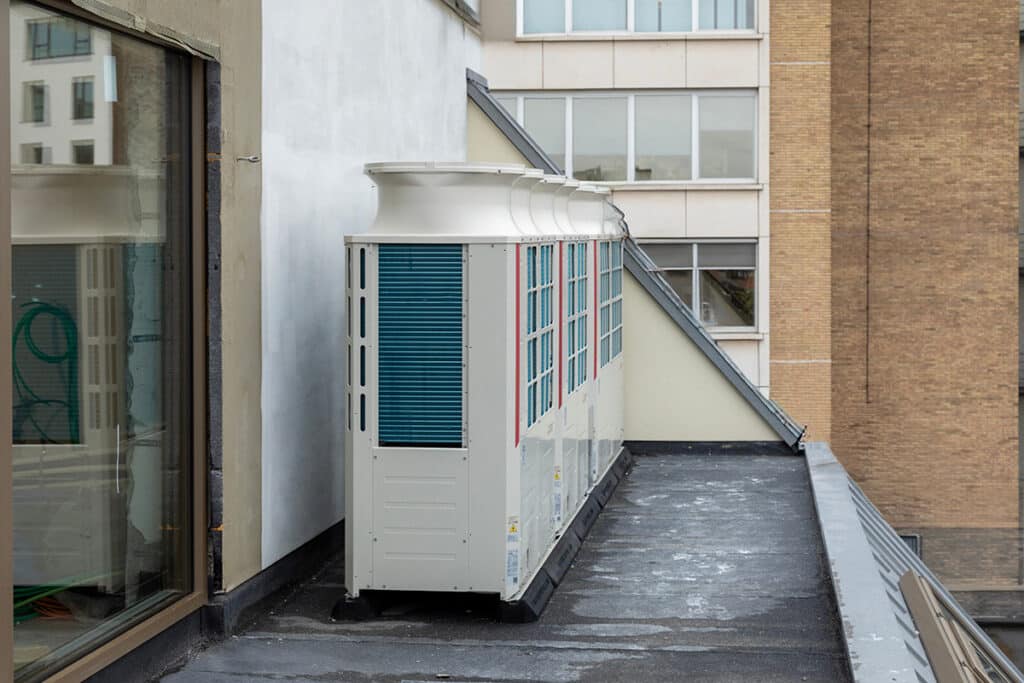
Hotel Skipr and Mitsubishi Electric set the standard for the future of the hotel industry
In April, Antwerp will gain a new gem: Hotel Skipr, an affordable design hotel close to the iconic MAS. With a unique blend of style and innovation, this will be the place to stay for travellers who appreciate comfort and sustainability. Don't skip the opening, because behind the elegant facade is more than just a pretty design. For Mitsubishi Electric installed its revolutionary City Multi Hybrid VRF system on water there.
Sustainability has long since ceased to be a luxury in the hotel sector, but a priority. Hotels want to score with BREEAM, the internationally recognised seal of approval that measures how a building performs in terms of energy, environment and comfort. At the same time, heat pump manufacturers such as Mitsubishi Electric are facing stricter EU regulations around F-gases, designed to drastically reduce harmful greenhouse gas emissions.
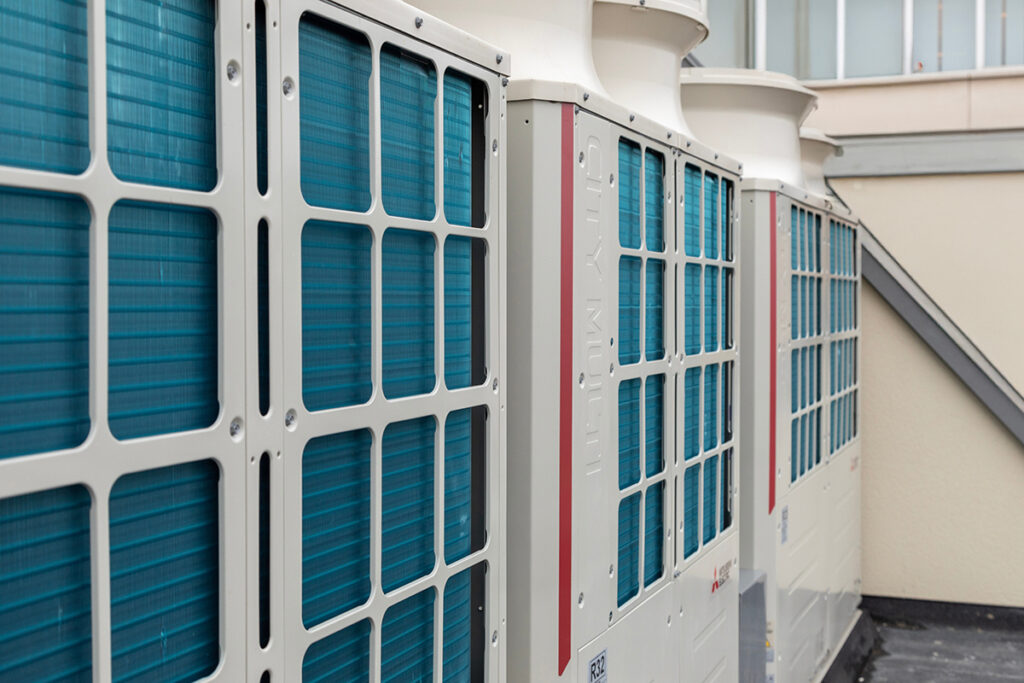
Innovative heating and cooling
With the innovative City Multi Hybrid VRF system, Mitsubishi Electric offers a solution that combines both goals: a more sustainable building and a cleaner environment. Because the heat pump uses water as a secondary medium inside instead of conventional refrigerants such as R410a, which have a major impact on the environment. The result? Fewer emissions, lower energy costs and a high level of comfort.
"The City Multi Hybrid VRF system here operates according to the R2 system," explains Bart Smulders, Account Manager at Mitsubishi Electric. "Thanks to this innovative system, only two ducts are needed instead of three, which not only saves costs but also simplifies installation. In addition, each room can be heated or cooled separately at the same time, while heat can be recovered with exceptionally high efficiency." Another major advantage is the absence of huge buffers of hundreds of litres of water that need to be heated continuously, making the system not only more compact, but also more energy efficient. "The City Multi Hybrid VRF system combines speed, flexibility and sustainability, surpassing traditional alternatives."
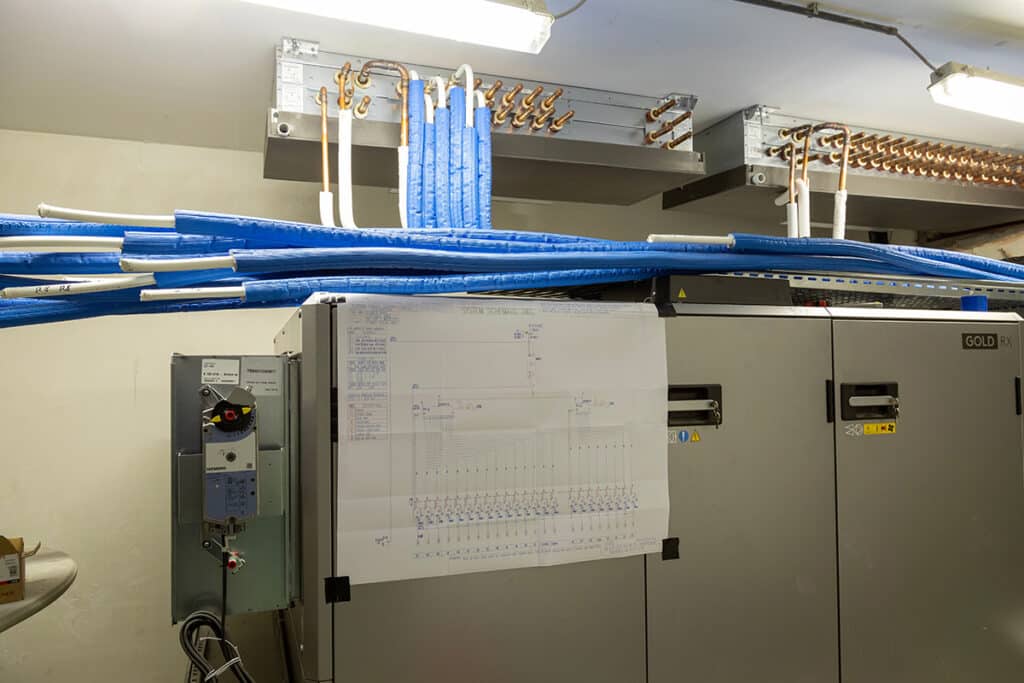
From design to installation: a technical challenge
"Bleeding the waterborne system is an important process to ensure efficiency and comfort, and takes two-thirds of the start-up time," says Bart. "It prevents noise problems and underperformance, which is unacceptable in a hotel environment. After all, your system or radiator at home doesn't work properly either if it has air on it."
For the Skipr project, Mitsubishi Electric worked closely with VERBO, an installation company with extensive experience in refrigeration technology. The cooperation led to a flawless implementation, in which technical challenges were smoothly overcome. The result is an installation that not only functions perfectly, but is also prepared for the future.
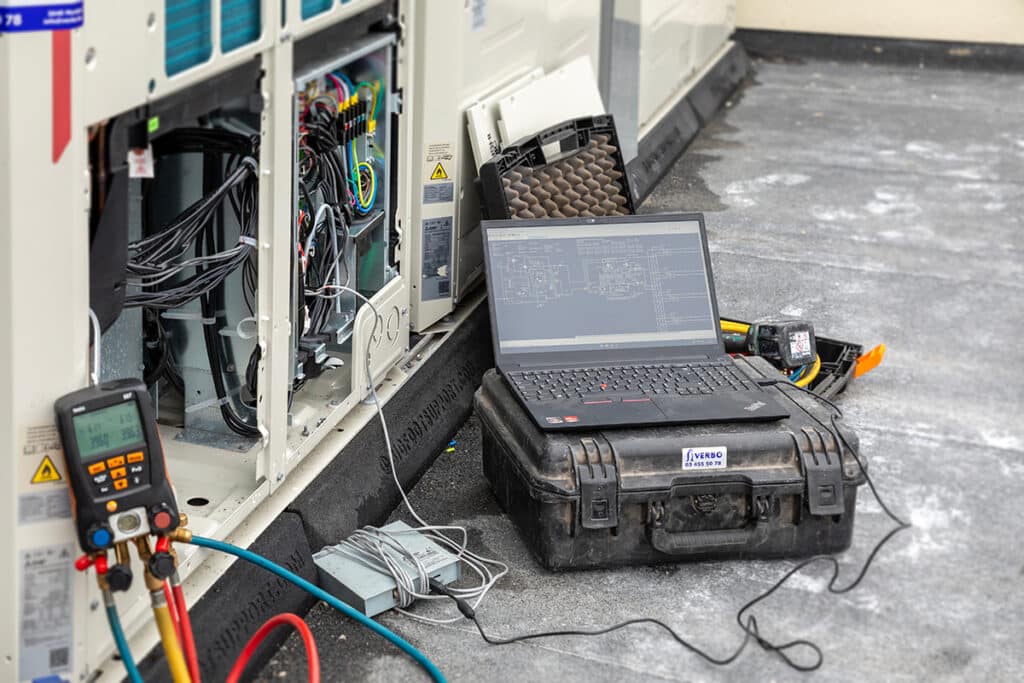
Sustainability as a driver
Sustainability is at the heart of Mitsubishi Electrics business strategy. The company consistently opts for ecological packaging and recyclable materials: as much as 90 per cent of the components of old systems can be recycled. This makes them a pioneer in the industry's circular economy. And the City Multi Hybrid VRF system aligns perfectly with this vision: by using water as the refrigerant on the indoor installation and avoiding refrigerants there, the system significantly reduces its carbon footprint.
On top of that, Mitsubishi Electric continues to look for new ways to make technology greener and safer. For instance, the company is working on heat pumps based on propane R290, an eco-friendly alternative that is becoming the future for split units. Although implementation still has challenges, Mitsubishi Electric expects to launch its first single split air-conditioning unit next year. With such innovations, the heat pump manufacturer is betting on solutions for the hotel sector that not only meet current standards, but are also future-proof. This makes Hotel Skipr not just another accommodation, but a paragon of innovation in the heart of Antwerp.
Heeft u vragen over dit artikel, project of product?
Neem dan rechtstreeks contact op met Mitsubishi Electric Belgium.
 Contact opnemen
Contact opnemen
